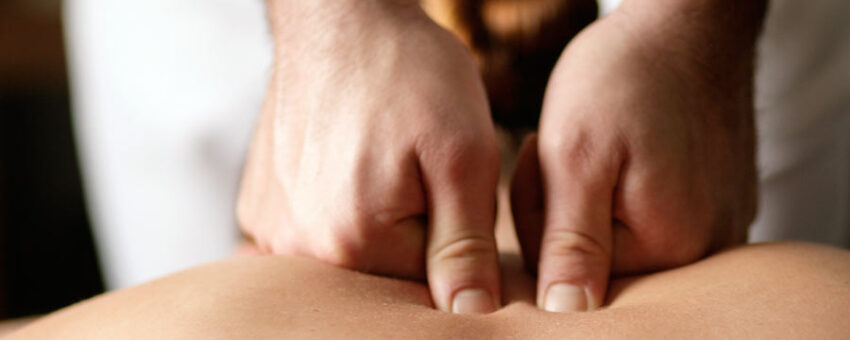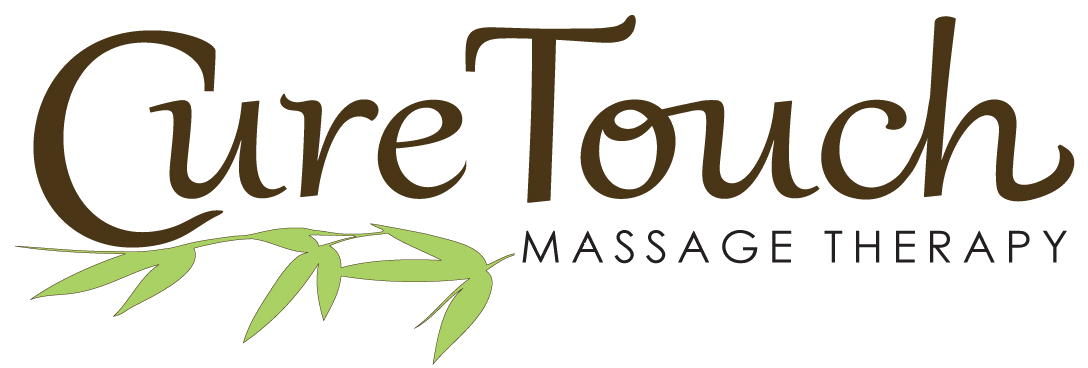
If you’re reading this blog, there’s a good chance that you’ve already come in to Cure Touch to get a massage from one of our therapists before. Maybe you came in to unwind from a stressful day; maybe you came in to address some chronic neck or low back pain; maybe you recently had surgery or were in a car accident. Whatever the reason, you came in hoping that massage would give you the relief you were looking for – and you aren’t the first.
In the past few years, massage therapy has become increasingly mainstream as more and more people seek out new, integrative ways to manage their health. With this has come a wealth of stories about how massage has helped people with a variety of health issues and disorders.
Of course, for some, anecdotal evidence isn’t enough. So, what does the science community have to say about massage? Well, it turns out, a lot! With the increased popularity of massage therapy, scientists have also done hundreds of studies looking at how and why massage works. Here are some of science’s most prominent findings on massage.
Pain Reduction
This one isn’t really a surprise, as it’s the most common complaint we get from our clients. Most people who come in to get a massage are looking for some kind of pain relief. It’s the one benefit most consistently associated with massage. In particular, massage has been shown to help with:
- Low Back Pain
- Neck and Shoulder Pain
- Osteoarthritis Pain (especially in the knees)
- Headache Pain (including migraines)
- Fibromyalgia Pain
Massage has also been shown to be successful in helping to treat chronic pain. And to top it all off, the past few years have shown an increase in studies looking into massage as a safer, nonpharmacological alternative to opioid use. This research is more recent, but the findings are promising!
Stress Management
Again, this one really isn’t a surprise, either. A LOT of people just need time and space to unwind and relax, and getting a massage is a great way to do that.
Dealing with high levels of stress can increase levels of cortisol – a hormone our bodies produce in response to stress – in our bodies. Massage, on the other hand, has been shown to both decrease cortisol levels and increase the levels of feel-good hormones like dopamine and serotonin. This can decrease stress levels and increase feelings of relaxation and well-being.
Mental Health
Speaking of feelings, did you know that massage can help with your mental and emotional health as well? Studies have shown that getting regular massage can help reduce symptoms associated with anxiety and depression. In fact, the majority of studies have linked massage with reducing depression-related symptoms!
Improved Immune Function
There is some evidence to suggest that massage can help increase your immune system’s functions. Massage produces shifts in your nervous system and hormones that help increase and protect the number of lymphocytes (a special type of white blood cell) in your body. Also, it can also reduce inflammation markers related to disease.
Injury/Surgery Recovery
Anyone who’s had to deal with a sprained ankle or a rotator cuff surgery can testify that it takes time for the body to heal. The good news is that massage can help!
There is an increasing body of research looking into how massage can help people during recovery. So far, massage has been shown to help most with pain management – but it can also help with reducing inflammation and scar tissue formation, which in turn helps reduce the amount of time needed to recover and return to full function. Just make sure to talk to your doctor to get the all-clear first, and keep your therapist in the loop with any doctor’s orders you receive during your recovery.
What Else Can It Do?
The sections above listed the most common findings related to massage research, but that is nowhere near the number of things massage can help with! Although the evidence is limited, there are studies that show massage can help with:
- Treating symptoms of cancer and cancer-related therapies (under the direction of a doctor)
- Improving physical fitness and reducing injuries in athletes
- Helping premature babies gain weight and meet other milestones of development
- Improving sleep
- Improving flexibility and range of motion
- Improving circulation, heart rate, and blood pressure
- Improving digestive disorders
- Addressing TMJ
…and more!
Frequency is Key
As a small disclaimer, almost all of the studies on massage have looked at the effects of weekly massage on clients for short periods of time, often 1-2 months. There is a chance that, depending on your needs, you may need more or less frequent massage. Make sure to talk with your therapist to determine a frequency of receiving massage that fits your needs best. And remember, as amazing as massage is, it can’t replace proper medical care. Make sure to talk to your doctor about adding massage to your self-care regimen – then relax knowing you’re in good hands!
Resources
https://time.com/5085140/massage-health-benefits/
https://www.nccih.nih.gov/health/providers/digest/massage-therapy-for-health-science
https://www.integratedbodyandmed.com/blog/5-health-benefits-of-therapeutic-massage
https://www.amtamassage.org/resources/massage-and-health/
https://www.amtamassage.org/find-massage-therapist/25-reasons-to-get-a-massage/
https://www.mayoclinic.org/healthy-lifestyle/stress-management/in-depth/massage/art-20045743

No Comments